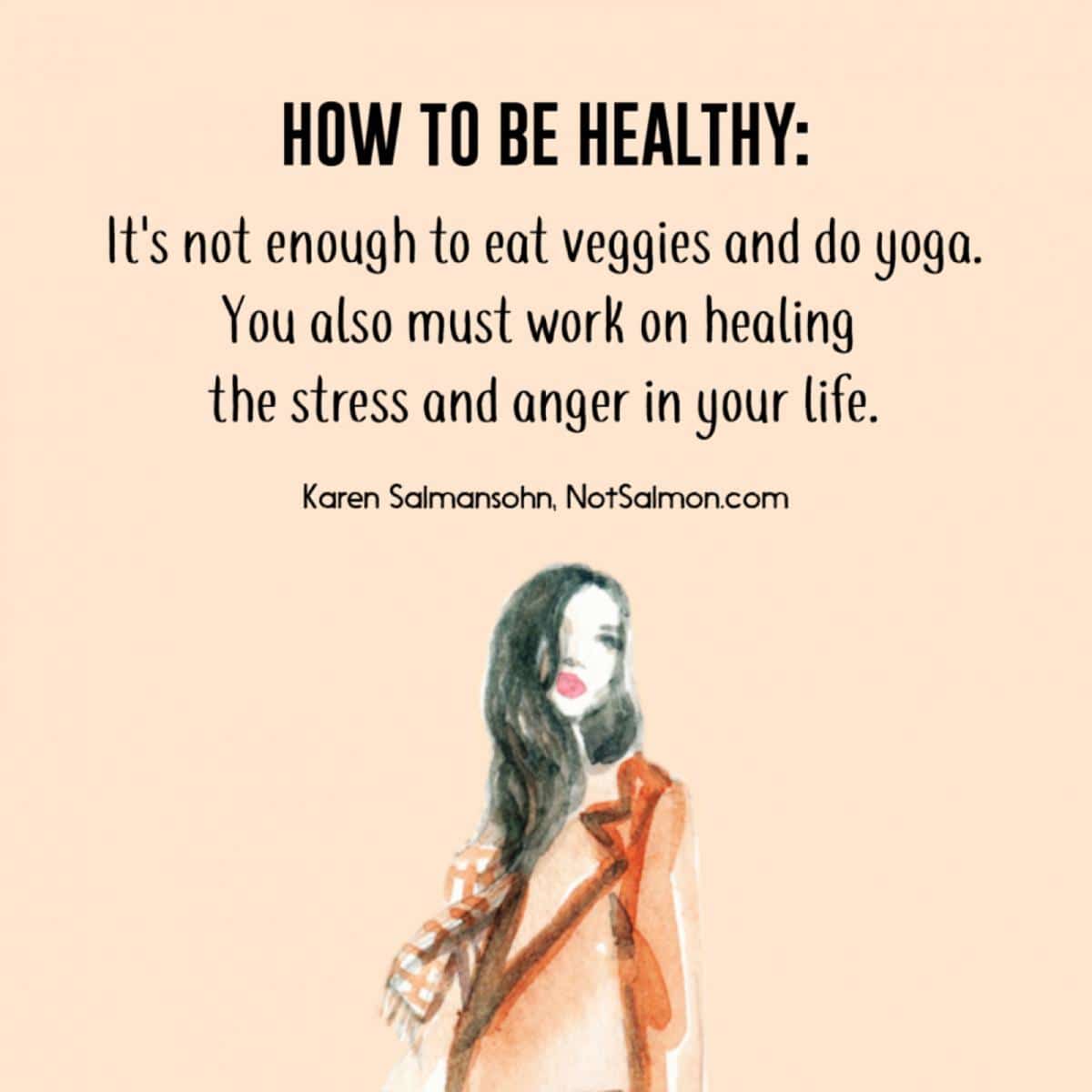 Anxiety is a common mental health concern that affects millions of people worldwide. While traditional treatments like therapy and medication are often effective, many individuals seek alternative approaches to manage their symptoms.
Anxiety is a common mental health concern that affects millions of people worldwide. While traditional treatments like therapy and medication are often effective, many individuals seek alternative approaches to manage their symptoms.
I’m sharing about this topic because I’m a bestselling wellness author and leading Behavioral Change Expert, and love to help people to live healthier lives.
This guide explores various alternative treatments for anxiety, offering insights into their potential benefits and considerations.
Understanding Anxiety and the Need for Alternative Treatments
Anxiety disorders can manifest in various forms, from generalized anxiety to specific phobias and social anxiety. While conventional treatments are helpful for many, some people may:
- Experience side effects from medications
- Prefer non-pharmaceutical approaches
- Seek complementary therapies to enhance their current treatment
- Look for options when traditional methods haven’t provided sufficient relief
This is where alternative treatments for anxiety come into play, offering additional tools for managing symptoms and improving overall well-being.
Popular Alternative Treatments for Anxiety
1. Mindfulness and Meditation
Mindfulness-based practices have gained significant attention in recent years as effective alternative treatments for anxiety. These techniques involve focusing on the present moment and developing a non-judgmental awareness of thoughts and feelings.
Benefits:
- Reduces stress and anxiety symptoms
- Improves emotional regulation
- Enhances overall well-being
Practical Application:
- Daily meditation practice (start with 5-10 minutes)
- Mindfulness apps and guided sessions
- Mindfulness-Based Stress Reduction (MBSR) programs
2. Yoga

How to be healthy: It’s not enough to eat veggies and do yoga. You also must work on healing the stress and anger in your life. -Karen Salmansohn
Yoga combines physical postures, breathing exercises, and meditation, making it a holistic approach to managing anxiety.
Benefits:
- Reduces physical tension and stress
- Improves body awareness and mindfulness
- Enhances overall physical health
Practical Application:
- Regular yoga classes (in-person or online)
- Gentle or restorative yoga for relaxation
- Yoga nidra for deep relaxation and stress relief
3. Herbal Supplements
Certain herbs have been traditionally used to alleviate anxiety symptoms. It’s important to note that while these can be effective alternative treatments for anxiety, they should be used under professional guidance.
Popular Herbs:
- Chamomile
- Lavender
- Passionflower
- Valerian root
Considerations:
- Consult with a healthcare provider before starting any herbal regimen
- Be aware of potential interactions with medications
- Quality and purity of supplements can vary
4. Aromatherapy
The use of essential oils and aromatic compounds can have a calming effect on the mind and body.
Common Oils for Anxiety:
- Lavender
- Bergamot
- Ylang-ylang
- Frankincense
Practical Application:
- Diffusers for aromatic dispersion
- Topical application (diluted with carrier oils)
- Aromatherapy massage
5. Acupuncture
This traditional Chinese medicine technique involves inserting thin needles into specific points on the body to balance energy flow.
Benefits:
- May reduce anxiety symptoms
- Can improve overall well-being
- Potential for better sleep quality
Considerations:
- Seek a licensed and experienced practitioner
- May require multiple sessions for noticeable effects
- Some people may experience mild discomfort
Alternative Treatments for Depression and Anxiety
Many individuals experience both anxiety and depression, and some alternative treatments can address both conditions simultaneously.
1. Exercise
Regular physical activity is one of the most effective alternative treatments for depression and anxiety.
Benefits:
- Releases endorphins, the body’s natural mood elevators
- Improves sleep quality
- Boosts self-esteem and confidence
Practical Application:
- Aim for at least 30 minutes of moderate exercise most days
- Try a variety of activities to find enjoyable options
- Consider group classes for added social support
2. Omega-3 Fatty Acids
These essential fats, found in fish oil and some plant sources, may have mood-stabilizing effects.
Benefits:
- May reduce symptoms of both anxiety and depression
- Supports overall brain health
Sources:
- Fatty fish (salmon, mackerel, sardines)
- Flaxseeds and chia seeds
- High-quality fish oil supplements
3. St. John’s Wort
This herb has been used traditionally for mood disorders and may help with both anxiety and mild to moderate depression.
Considerations:
- Can interact with many medications, including antidepressants
- May cause photosensitivity
- Should only be used under professional guidance
Alternative Treatments for Severe Anxiety
For those dealing with severe anxiety, a combination of traditional and alternative approaches may be necessary. Some alternative treatments for severe anxiety include:
1. Neurofeedback
This technique involves monitoring brain activity and teaching self-regulation of brain function.
Benefits:
- May help reduce anxiety symptoms
- Can improve focus and emotional regulation
- Non-invasive and drug-free
Considerations:
- Requires multiple sessions
- Can be expensive
- Availability may be limited in some areas
2. Hypnotherapy
Hypnosis can help access the subconscious mind to address deep-seated anxieties and change thought patterns.
Benefits:
- Can provide rapid relief for some individuals
- Addresses underlying causes of anxiety
- May improve sleep and relaxation
Considerations:
- Effectiveness can vary among individuals
- Requires a skilled and licensed hypnotherapist
- May not be suitable for everyone
3. Intensive Outpatient Programs (IOPs)
While not strictly “alternative,” IOPs offer a middle ground between traditional outpatient therapy and inpatient treatment.
Benefits:
- Provides structured support and intensive therapy
- Allows individuals to maintain daily routines
- Can incorporate various alternative therapies
Considerations:
- Time-intensive commitment
- May not be covered by all insurance plans
- Availability can be limited in some areas
Alternative Treatments for Social Anxiety
Social anxiety disorder can be particularly challenging, but several alternative approaches may help:
1. Cognitive Behavioral Therapy (CBT) with Virtual Reality
While CBT is a traditional therapy, combining it with virtual reality technology offers an innovative approach.
Benefits:
- Provides a safe environment to practice social interactions
- Can gradually increase exposure to anxiety-provoking situations
- May accelerate progress compared to traditional CBT alone
Considerations:
- Requires specialized equipment and trained therapists
- May not be widely available
- Could be costly if not covered by insurance
2. Art Therapy
Engaging in creative activities can be a powerful tool for expressing emotions and reducing social anxiety.
Benefits:
- Offers a non-verbal outlet for emotions
- Can improve self-esteem and self-expression
- Provides a gentle way to process anxiety-related thoughts
Practical Application:
- Group art therapy sessions
- Personal creative projects
- Coloring books designed for stress relief
3. Social Skills Training
While not strictly “alternative,” structured social skills training can be a valuable complement to other treatments for social anxiety.
Benefits:
- Builds confidence in social situations
- Provides practical tools for managing anxiety
- Can be tailored to specific social challenges
Practical Application:
- Group workshops
- One-on-one coaching
- Role-playing exercises
Integrating Alternative Treatments into Your Anxiety Management Plan
When considering alternative treatments for anxiety, it’s important to:
- Consult with Healthcare Providers: Discuss any alternative treatments with your doctor or mental health professional, especially if you’re currently on medication.
- Start Slowly: Introduce new treatments gradually to assess their effectiveness and any potential side effects.
- Combine Approaches: Many people find that a combination of traditional and alternative treatments works best.
- Be Patient: Some alternative treatments may take time to show effects. Give each approach a fair trial period.
- Monitor Progress: Keep a journal to track your symptoms and the effects of different treatments.
- Stay Informed: Research reputable sources and stay updated on the latest studies regarding alternative treatments for anxiety.
Conclusion: Alternative Treatments for Anxiety
Alternative treatments for anxiety offer a wide range of options for those seeking to manage their symptoms and improve their overall well-being. From mindfulness and yoga to herbal supplements and innovative therapies, these approaches can complement traditional treatments or provide relief for those who prefer non-pharmaceutical options.
Remember that what works best can vary from person to person. It’s essential to work with healthcare professionals to develop a comprehensive treatment plan that may include a combination of conventional and alternative approaches. By exploring these options and finding the right combination, many individuals can find significant relief from anxiety and enjoy a better quality of life.
Whether you’re dealing with generalized anxiety, social anxiety, or a combination of anxiety and depression, there are alternative treatments worth exploring. With patience, persistence, and professional guidance, you can discover the most effective ways to manage your anxiety and thrive.
Get More Tools Reduce Anxiety
Check out my research-backed and therapist recommended online program: The Anxiety Cure Course.
P.S. Before you zip off to your next Internet pit stop, check out these 2 game changers below - that could dramatically upscale your life.
1. Check Out My Book On Enjoying A Well-Lived Life: It’s called "Your To Die For Life: How to Maximize Joy and Minimize Regret Before Your Time Runs Out." Think of it as your life’s manual to cranking up the volume on joy, meaning, and connection. Learn more here.
2. Life Review Therapy - What if you could get a clear picture of where you are versus where you want to be, and find out exactly why you’re not there yet? That’s what Life Review Therapy is all about.. If you’re serious about transforming your life, let’s talk. Learn more HERE.
Think happier. Think calmer.
Think about subscribing for free weekly tools here.
No SPAM, ever! Read the Privacy Policy for more information.
One last step!
Please go to your inbox and click the confirmation link we just emailed you so you can start to get your free weekly NotSalmon Happiness Tools! Plus, you’ll immediately receive a chunklette of Karen’s bestselling Bounce Back Book!


 Anxiety is a common mental health concern that affects millions of people worldwide. While traditional treatments like therapy and medication are often effective, many individuals seek alternative approaches to manage their symptoms.
Anxiety is a common mental health concern that affects millions of people worldwide. While traditional treatments like therapy and medication are often effective, many individuals seek alternative approaches to manage their symptoms.
